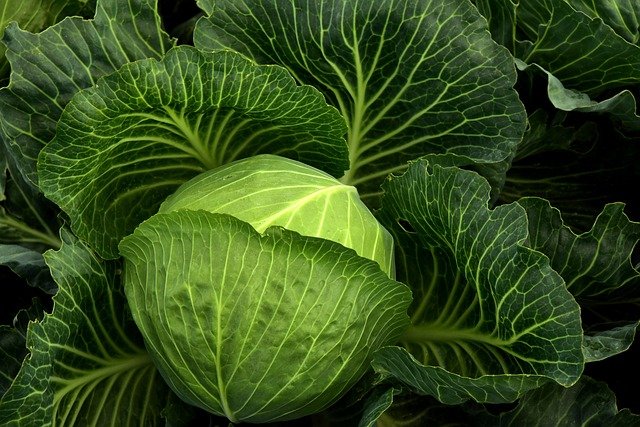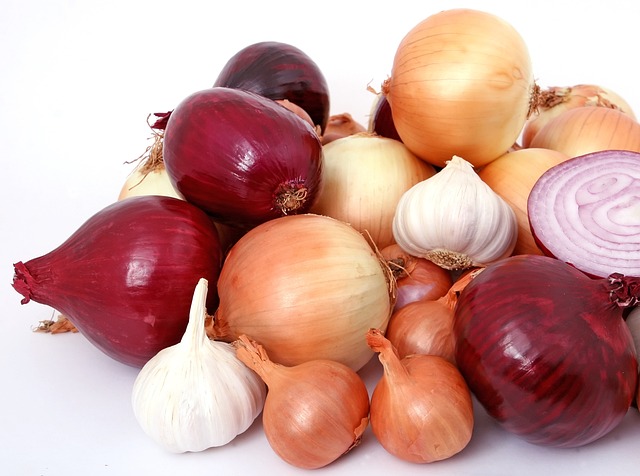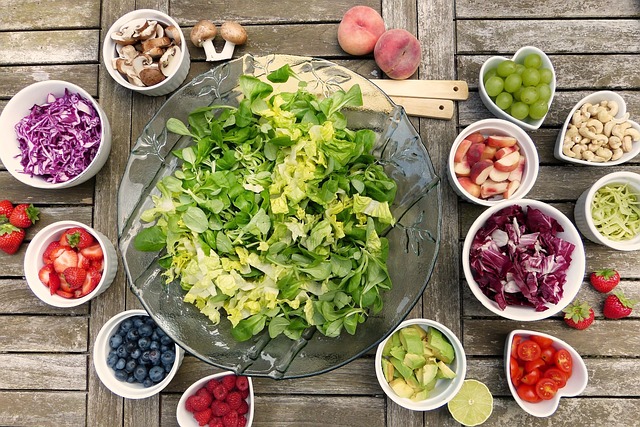Breast cancer is a highly complex disease that is characterized by the spread of abnormal cell growth that starts in the breasts.
According to the World Cancer Research Fund, breast cancer is the second most common cancer in the world and is the most commonly occurring cancer among women. Although it is rare, breast cancer occurs in men too, which makes up approximately 1% of breast cancer cases worldwide.[1,2]
Just like most diseases, some of us are genetically predisposed to certain diseases, especially cancer.
Fortunately, there are some scientifically proven preventive measures that one can take to reduce their chances of developing breast cancer. Aside from lifestyle changes or supplements, you can also utilize your everyday diet a source of protection against these chronic diseases.
In this article, we will be discussing those who are at risk of developing breast cancer – and what you can do to minimize your risk.
The Risk of Developing Breast Cancer
If you’re worried about your chances of developing breast cancer, BreastCancer.org has enumerated the breast cancer risk factors that you can take into consideration.[3]
- Being a woman. As we have mentioned earlier, breast cancer is the most common type of cancer that affects women, while it rarely affects men. Unlike most men (whose breasts are rarely fully formed), women’s breasts take between 3-4 years to develop, which happens during puberty. Once the breast is fully developed, breast cells are highly responsive and vulnerable to estrogen and other hormones that normally fluctuate throughout their lifetime. It is only during a woman’s first term pregnancy that the breast cells completely mature and stable. It is this vulnerability and instability which makes women’s breasts so susceptible to cancer!
- Age. As we age, out bodies are less capable of repairing the genetic damage that happens within our cells. This is also why people who had been healthy during their younger years will still have a chance of developing chronic diseases, as aging will inevitably make our immunity less effective.
- Genetics. If you have relatives, especially from your immediate family, who has had breast cancer, then you’re more likely to carry the gene which causes breast cancer.
- Radiation to chest/face before the age of 30. If you’ve ever underwent radiation treatment on your face or chest for other types of cancers, then you are more likely to develop breast cancer.
- Race/Ethnicity. Statistically, Caucasian women are more likely to develop breast cancer than Asian, Black, or Hispanic women.
- Being Overweight. Overweight and obese women (classified as having a BMI above 25) have a higher risk of being diagnosed with breast cancer than women who maintained a healthy weight.
- Early menstruation. Women who started their menstruation before the age of 12 are found to have a higher risk of breast cancer later in life. This is because the start of menstruation also signals the start of your breasts’ development, which exposes them earlier to hormonal imbalances or fluctuations.
- Drinking alcohol. Studies have shown that women who frequently consume alcoholic beverages are more likely to be diagnosed with breast cancer. This is because alcohol increases your estrogen levels (along with other hormones), which may lead to the growth of abnormal breast cells.
- Lack of exercise. Women who lead sedentary lifestyles are more likely to develop breast cancer. Exercise helps control blood sugar levels and insulin growth, both of which affects the growth of breast cells. By stabilizing your blood sugar and insulin levels, your breast cells will experience less turbulence that may cause abnormal growth.
- Smoking. Statistically, smoking is linked with a higher risk of developing cancers, including breast cancer.
- Dense breasts. Women who have denser breasts have less fatty tissue, leaving room to have more glands that drains and produces milk. Statistically, women with denser breasts are twice more likely to develop breast cancer, while it is also harder to detect on the mammogram as the cancer can easily blend in with the normal tissues.
- Light exposure at night. Women who work night shifts are more likely to develop breast cancer. Scientists believe that this is due to low melatonin levels, which are the sleep inducing hormones that normally peak during nighttime.
- History of breast cancer. If you’ve already had breast cancer, you are 3 to 4 times likely to develop cancer again.
Food That Will Lower Your Breast Cancer Risk
If you believe that you’re at a high risk of developing breast cancer, there are certain preventive measures that you can do to minimize your chances.
One of the best ways to minimize your risk is by following a healthy diet filled with nutritious food. Below are some examples of food that are scientifically proven to reduce the risk of breast cancer.[12]
- Leafy green vegetables
Vibrant green leafy vegetables such as kale, spinach, arugula, chard, and mustard greens are a nutritional powerhouse.
What makes these leafy greens so special is that they contain a significantly large amount of carotenoids, which are the compounds that give them their beautiful green colors. These carotenoids, such as beta carotene, lutein, and zeaxanthin, are powerful antioxidants that are known to prevent chronic diseases such as cancer.

In fact, one study as able to find that women who consumed more carotenoids were less likely to develop breast cancer, as opposed to those who ate very little leafy greens.[4]
- Citrus fruits
Citrus fruits, such as oranges, lemons, limes, grapefruits, and pomelos, don’t just make refreshing drinks. They’re also rich in compounds that are known to have anti-cancer properties, such as vitamin C, carotenoids, folate, and flavonoid antioxidants.[5]
- Fatty fish
Fatty fish, such as salmon, tuna, herring, sardines, and mackerel are among the healthiest species of fish available. In fact, the omega-3 that they contain so much of is sold as food supplements, commonly known as “fish oil”.
Aside from omega-3, fatty fish also contains antioxidants that can protect your body from cancer. For instance, one analysis that involved a total of 800,000 participants’ data found that those who regularly ate omega-3 rich seafood had up to 14% reduced risk of developing breast cancer.[5]
- Berries
Strawberries, blueberries, and raspberries are fruits that we typically enjoy as a dessert flavor or as a smoothie. Thankfully, these tasty fruits are also rich in antioxidants, which is known to protect our cells from damage and the spread of cancer cells.[6]
- Fermented food
Most fermented food may smell funky, but don’t let their odor fool you! Fermentation is a process that humans have been practicing for thousands of years now – and this process often leads to a healthier product than whatever food it came from.
These fermented foods include tofu, kimchi, miso, yogurt, kefir, and sauerkraut. Thanks to the fermentation process, these foods are enriched with probiotics and nutrients that may help reduce the risk of breast cancer.[7]
- Garlic and Onions
Allium vegetables, such as garlic, onions, and leeks, are rich in their unique organosulfur compounds, antioxidants, and vitamin C. In fact, one study from Puerto Rico found that women who had high garlic and onion intake were less likely to have breast cancer. This may suggest that allium vegetables have a powerful anticancer effect.[8]

- Apples, peaches, and pears
Perhaps the phrase “an apple a day keeps the doctor away” may have some truth to it after all!
Apples, peaches, and pears have one thing in common – this group of fruits is known to have high levels of vitamin C, fiber, and antioxidants. Along with other vitamins and minerals, this mix of nutrients will effectively increase your immunity and decrease your risk of developing breast cancer.[9]
- Cruciferous vegetables
Cruciferous vegetables, which are characterized by their four-petaled flowers (hence the name originating from the New Latin word meaning “cross-bearing”), are some of the healthiest vegetables in the planet. Examples of cruciferous vegetables include broccoli, bok choy, cabbage, brussels sprouts, watercress, and radishes.
This family of vegetables all specifically have glucosinolate compounds, which the body can convert into isothiocyanates that are believed to have anticancer properties.[10]
- Beans
For such small and unassuming vegetables, beans pack a lot of nutrients per serving.
Beans are high in proteins, vitamins, and minerals. However, it is their fiber content that researchers believe to be the source of its anticancer properties. In fact, a study from 2018 found that women who had high bean intake were up to 20% less likely to have breast cancer.[11]
- Herbs and spices
The aromatic and flavorful herbs and spices that we use to create complex flavors to our dishes are also a great source of nutrition. Most notably antioxidants, such as curcumin (which is found in turmeric), carvacrol, and rosmarinic acid.
Just like most antioxidants, these compounds will help protect your cells against damage and free radicals that may cause cancer.
Foods and Beverages to Avoid
Just as there are foods that will decrease your chances of developing breast cancer, there are also those that may increase that risk. Here is a list of foods that are believed to increase the risk of developing breast cancer.[13]
- Alcohol: As mentioned earlier, alcohol is known to increase the risk of breast cancer. This is because alcohol has the ability to increase estrogen levels, as well as other hormones that may trigger abnormal growth among breast cells.
- Fat: While good fats do exist, such as the omega-3 fatty acids that were mentioned earlier, there are also some fats that are detrimental to your health. For instance, trans fat is a common fat that is typically used in processed and fast foods (i.e., potato chips, donuts, French fries, cookies). Scientists were able to find a link between high trans fat intake and breast cancer. If you’re at a high risk of breast cancer, you may want to cut down on your fast food intake!
- Sugar: A study involving mice found that those that ate a sugar rich diet were more likely to develop tumors in their mammary glands, which is much like breast cancer in human terms.
- Red Meat: Red meat, such as beef, veal, lamb, or pork, have been linked to an increased risk of breast cancer. It doesn’t help that red meat is also commonly sold as processed food! While some red meat can be beneficial every now and then, it’s still best to limit your consumption.
Additional Tips for Reducing Breast Cancer Risk
Aside from switching to a healthier diet, you should also consider changing some aspects of your lifestyle that may be contributing to your breast cancer risk.[14]
- Stop smoking. Both passive and active smokers have an increased risk of developing breast cancer. Women who start smoking early are also more susceptible to breast cancer. If you are a longtime regular smoker, it is highly suggested that you should undergo regular screenings for breast cancer.
- Practice routine stress management. Because of our busy and hectic lives, many of us are subjected to inevitable stress. Unfortunately, stress and psychological factors associated with major life events have been linked to breast cancer. Since stress can be inevitable, it’s best to develop a de-stressing habit, such as meditation, entertainment, and exercise, to reduce the impact of stress on your health.
- Exercise regularly. The lack of physical activity is another risk factor for breast cancer. Through exercise, your breast cancer risk will be minimized as the hormones in your body will be regulated, preventing a disturbance that may trigger the development of cancer cells. Regular exercise will also minimize other risk factors such as obesity and insulin resistance.
Conclusion
Breast cancer is a common type of cancer that affects men and women alike.
While it is mostly caused by a genetic predisposition, breast cancer can also be avoided with the help of a few lifestyle changes. Switching to a healthier and clean diet is one of the best preventive measures, as you are able to provide yourself with organic nutrients that are scientifically proven to reduce the risk of cancer. This is combined with limiting (or better, completely eliminating) unhealthy foods, such as those that contain high trans fats and sugars that can negatively impact your health beyond the risk of breast cancer.
With regular exercise, following a healthy diet that includes the foods listed above is sure to protect you from the dangers of cancer. Even if you’re not at a high risk of breast cancer, following this healthy lifestyle will benefit you, too!
References
[1] World Cancer Research Fund (2018) Breast cancer statistics. Retrieved on September 10, 2020, from https://www.wcrf.org/dietandcancer/cancer-trends/breast-cancer-statistics
[2] American Cancer Society. (2020) Key Statistics for Breast Cancer in Men. Retrieved on September 10, 2020 from https://www.cancer.org/cancer/breast-cancer-in-men/about/key-statistics.html
[3] Breastcancer.org. (n.d.) Breast Cancer Risk Factors. Retrieved on September 10, 2020, from https://www.breastcancer.org/risk/factors
[4] Eliassen, A. H., Hendrickson, S. J., Brinton, L. A., Buring, J. E., Campos, H., Dai, Q., Dorgan, J. F., Franke, A. A., Gao, Y. T., Goodman, M. T., Hallmans, G., Helzlsouer, K. J., Hoffman-Bolton, J., Hultén, K., Sesso, H. D., Sowell, A. L., Tamimi, R. M., Toniolo, P., Wilkens, L. R., Winkvist, A., … Hankinson, S. E. (2012). Circulating carotenoids and risk of breast cancer: pooled analysis of eight prospective studies. Journal of the National Cancer Institute, 104(24), 1905–1916. https://doi.org/10.1093/jnci/djs461
[5] Zheng, J. S., Hu, X. J., Zhao, Y. M., Yang, J., & Li, D. (2013). Intake of fish and marine n-3 polyunsaturated fatty acids and risk of breast cancer: meta-analysis of data from 21 independent prospective cohort studies. BMJ (Clinical research ed.), 346, f3706. https://doi.org/10.1136/bmj.f3706
[6] Lv, X., Zhao, S., Ning, Z., Zeng, H., Shu, Y., Tao, O., Xiao, C., Lu, C., & Liu, Y. (2015). Citrus fruits as a treasure trove of active natural metabolites that potentially provide benefits for human health. Chemistry Central journal, 9, 68. https://doi.org/10.1186/s13065-015-0145-9
[7] Ranjbar, S., Seyednejad, S. A., Azimi, H., Rezaeizadeh, H., & Rahimi, R. (2019). Emerging Roles of Probiotics in Prevention and Treatment of Breast Cancer: A Comprehensive Review of Their Therapeutic Potential. Nutrition and cancer, 71(1), 1–12. https://doi.org/10.1080/01635581.2018.1557221
[8] Desai, G., Schelske-Santos, M., Nazario, C. M., Rosario-Rosado, R. V., Mansilla-Rivera, I., Ramírez-Marrero, F., Nie, J., Myneni, A. A., Zhang, Z. F., Freudenheim, J. L., & Mu, L. (2020). Onion and Garlic Intake and Breast Cancer, a Case-Control Study in Puerto Rico. Nutrition and cancer, 72(5), 791–800. https://doi.org/10.1080/01635581.2019.1651349
[9] Noratto, G., Porter, W., Byrne, D., & Cisneros-Zevallos, L. (2014). Polyphenolics from peach (Prunus persica var. Rich Lady) inhibit tumor growth and metastasis of MDA-MB-435 breast cancer cells in vivo. The Journal of nutritional biochemistry, 25(7), 796–800. https://doi.org/10.1016/j.jnutbio.2014.03.001
[10] Melchini, A., & Traka, M. H. (2010). Biological profile of erucin: a new promising anticancer agent from cruciferous vegetables. Toxins, 2(4), 593-612.
[11] Sangaramoorthy, M., Koo, J., & John, E. M. (2018). Intake of bean fiber, beans, and grains and reduced risk of hormone receptor-negative breast cancer: the San Francisco Bay Area Breast Cancer Study. Cancer medicine, 7(5), 2131–2144. https://doi.org/10.1002/cam4.1423
[12] Kubala, J. (2020, July 31) Breast Cancer and Diet: 10 Foods to Eat (and a Few to Avoid). Retrieved on September 10, 2020, from https://www.healthline.com/nutrition/breast-cancer-foods
[13] Dresden, D. (2019, July 22) Dietary choices to help prevent breast cancer. Retrieved on September 10, 2020 from https://www.medicalnewstoday.com/articles/316720#fiber[14] Hashemi, S. H., Karimi, S., & Mahboobi, H. (2014). Lifestyle changes for prevention of breast cancer. Electronic physician, 6(3), 894–905. https://doi.org/10.14661/2014.894-905

